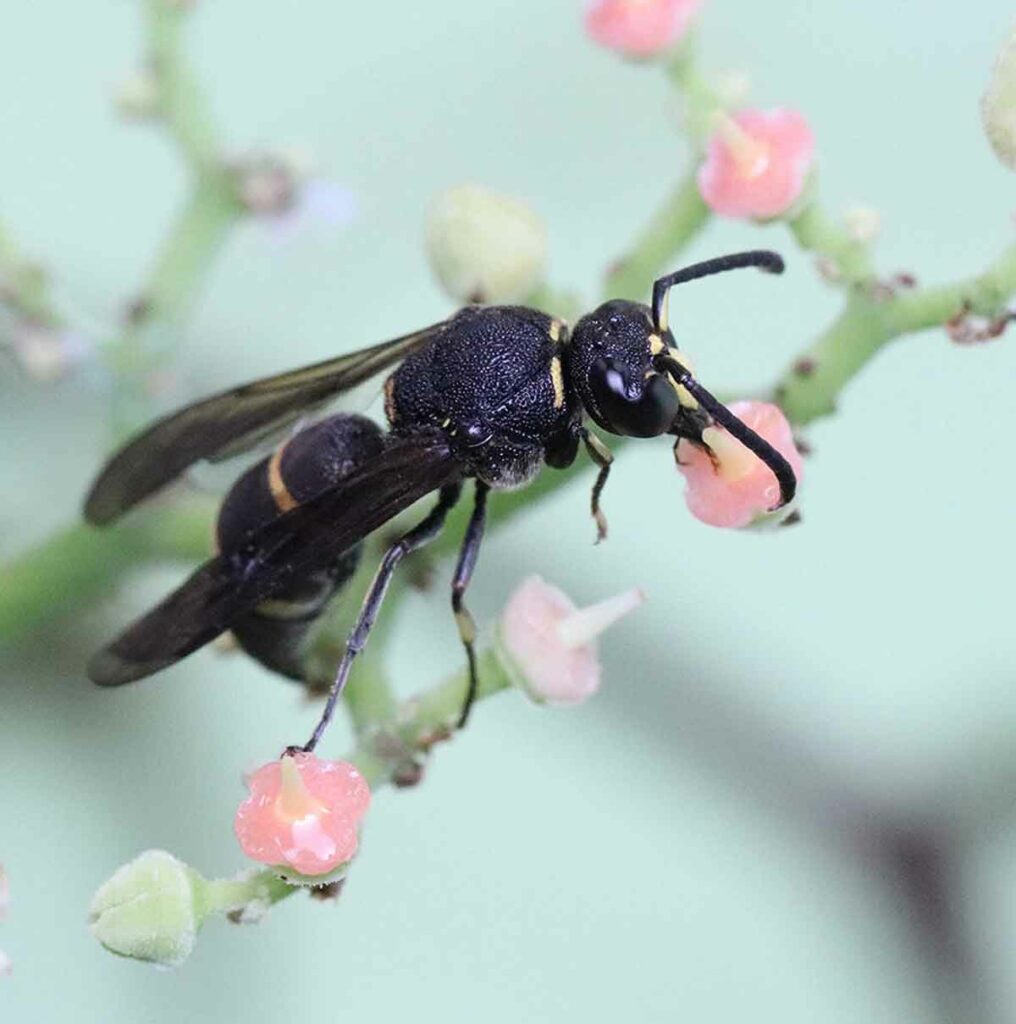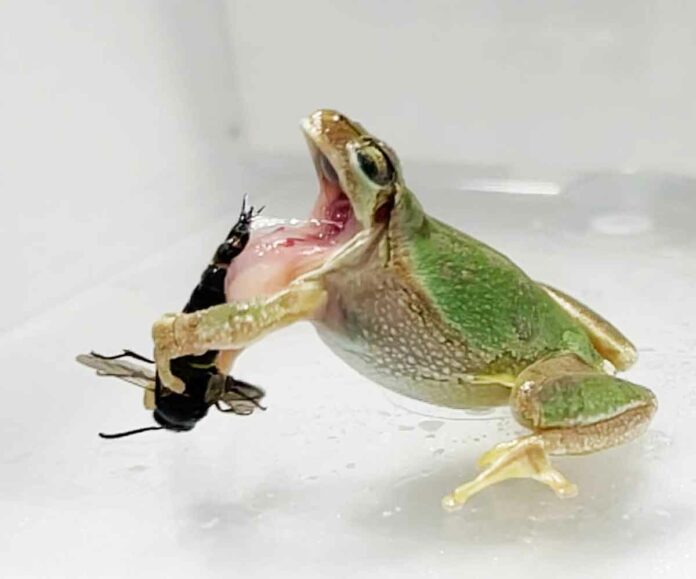Female bees and wasps sting their attackers with modified ovipositors. To avoid being swallowed, male mason wasps use sharp genital spines to attack and sting predatory tree frogs. This is according to a study published in Current Biology on December 19.
“Male genitalia have frequently been studied in terms of conspecific interactions between males and females. But it is rarely in terms of prey-predator interactions,” said Shinji Sugiura of Kobe University in Japan. “This study emphasises the importance of male genitalia as an anti-predator defence. It also opens a new window into the ecological role of male genitalia in animals.”
Suguira and study co-author Misaki Tsujii made the discovery after an accident. Tsujii was studying the life history of the mason wasp named Anterhynchium gibbifrons. Then she got stung.
Wasps and bees are well known for using venomous stings to defend themselves and their colonies from intruders. But they have evolved venomous stings from ovipositors. Males lacking ovipositors were believed harmless. The pain of a male sting did not add up.
To conduct additional research, the researchers paired male wasps with a potential tree frog predator. All of the frogs attacked the male wasps. But only about a third of them spit them out. While being attacked, the wasps sting the frogs with their genitalia.
When they gave tree frogs wasps that no longer had genitalia? They devoured them.

According to the findings, male wasps use their genitalia to sting predators and avoid being eaten. Male genital spines are called “pseudo-stings”. These are found in some wasp families. Scientists said that the newly discovered defensive role will likely be found in many wasp species.

